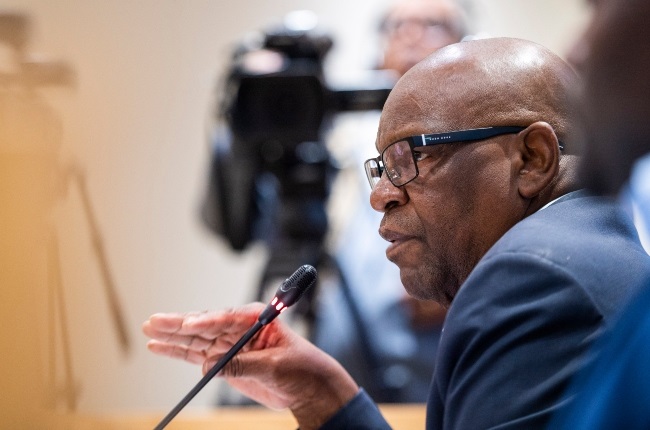
Is makgoma (loosely translated to 'dark cloud') a sufficient reason for not attending a funeral in 2023?
According to the husband of DJ Zinhle who shares a child with AKA, it is.
After the family of the late rapper, AKA, issued a statement stating that Bongani "Mörda" Mahosana would not be attending the funeral of his wife's former lover, this became one of the most frequently asked questions on social media.
Knowing that people still adhere to cultural customs despite the need to support fellow artists was shocking to many.
But makgoma is a practice that is commonly practised among the Pedi and Tswana cultures. When your ex passes away and you share a child, you do not attend their funeral.
The only way the ex can express sympathy to the late ex-partner's family is before and after the funeral.
This is the situation with AKA, DJ Zihle, and Mörda, who follows Pedi culture.
Read more | When Skhotheni came for advice about taking a second husband, I told her it is normal, gobela shares
“When they go to the person's family and offer matshidiso – or duduza in isiZulu – that is the support they can give," says Dr Mathole, who is a culture advisor.
Additionally, if a partner dies, a cleansing ceremony should be held for the surviving spouse and the children to prevent bad luck because makgoma can also affect children.
If a mother attends the funeral, then she has to wait until she is being cleansed to be in the presence of her husband and even be intimate with him.
A cleansing ceremony must be performed if the wife goes to a former lover's funeral and does not cleanse herself before returning to her husband as makgoma will affect the husband, says Dr Mathole.
"Because two families in an African family become one when members marry, they must be familiar with one another and their customs. In most African cultures, mourning partners are discussed during the process of joining both families. And they know how to deal with it when it happens."
Knowledge and comprehension must accompany support; it is counterproductive to support others while jeopardizing one's own safety, adds the Kara Heritage founder.
"Because of this, cultural education is necessary. A lot of problems can be avoided if people know where they stand and what kind of support they can provide during trying times. Don't go beyond what the culture protocols allow.
"Instead, explain the culture protocols to your wife, who should be on board because you are married to her. Tell her what these cultural protocols are and how they affect you. In this regard, the partners must cooperate with one another."
Read more | ‘Healers use herbs, not body parts,’ explains Traditional Healers’ Organisation’s Gogo Muntu Segage
Elders also talk about these protocols during the night vigil in cases where the husband was unaware of makgoma. According to Dr Mathole, the most important reason not to attend the funeral is to avoid death and the negative effects that accompany mourning.
The sad thing is that Africans were westernised in the name of Christianity, says the culture advisor. However, Christianity does not dictate how people should live or interact with one another. Rather, it emphasises how we should prepare ourselves to avoid sin.
"We neglected the factor that brought us to where we are today. First, Africans have what we refer to as a rite of passage, which explains why it's important to teach children certain things as they get older. As a result, we have initiations for boys and girls, rites of passage associated with these initiations, and elders who are criticised for possessing so much knowledge share their knowledge of specific cultural practices."
While the Bible has 10 commandments, African people’s commandments are in their culture and heritage, says the Kara Heritage founder.
“We neglected the thing which led us to what and who we are. Firstly, as African people we have what we call a rite of passage that is why when a child grow it is important to teach them certain things as they turn certain age. That is why we have initiation for boys and girls, rites of passage, and the elders who are accused of having so much knowledge share their knowledge on how things are done in certain cultures."



















